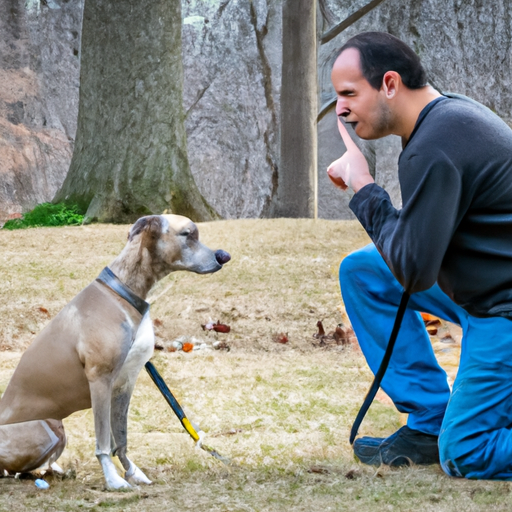Understanding Why Your Dog Barks
Firstly, let’s take a moment to understand why your dog might be barking at other dogs. Dogs are social animals, and barking is a primary form of communication. They might bark due to fear, anxiety, excitement, or even boredom. Remember, it’s not about “silencing” your dog, but teaching them a more appropriate behavior.
- Fear or Anxiety: Dogs often bark when they are afraid or anxious. This could be due to a bad experience with another dog, or simply because they are not used to seeing other dogs.
- Excitement: Some dogs bark out of sheer excitement when they see another dog. This is especially common in puppies and young dogs.
- Boredom: Dogs who don’t get enough mental and physical stimulation might bark at other dogs simply because it gives them something to do.
Training Your Dog to Be Calm Around Other Dogs
Training is key to teaching your dog to be calm around other dogs. Here are some steps you can take:
- Start Small: Begin with a dog that your dog is comfortable with. Gradually expose them to more dogs as they become more confident.
- Use Positive Reinforcement: Reward your dog with treats and praise when they remain calm around other dogs.
- Seek Professional Help: If your dog’s barking is severe or you don’t feel equipped to handle it, consider enlisting the help of a professional dog trainer.
Tools and Techniques You Can Use
There are several tools and techniques that you can use to help train your dog:
- Clicker Training: This is a method that uses a clicker to mark the moment your dog performs a desired behavior.
- Head Collars or Harnesses: These tools can give you more control over your dog’s movements and attention.
- Dog-Whispering: This technique involves understanding your dog’s body language and responding accordingly.
| Tools | Pros | Cons |
|---|---|---|
| Clicker | Precise, Fast | Requires Training |
| Collar/Harness | Control, Safety | Some Dogs Resist |
| Dog-Whispering | Natural, Non-Physical | Requires Skill, Patience |
Coping with Setbacks
Remember, progress may be slow and there will likely be setbacks. It’s important to stay patient and consistent. If you get frustrated, your dog will pick up on your emotions and it could make the problem worse.
Living a Bark-Free Life
It’s important to remember that even after your dog has learned to be calm around other dogs, you’ll need to continue reinforcing this behavior. Regular socialization and training sessions will help to ensure that your dog’s new skills stick.
FAQs
Q: My dog only barks at certain dogs. Why is this?
A: This can be due to a variety of factors, including the other dog’s size, breed, or behavior.
Q: Will my dog ever stop barking completely?
A: Not completely. Barking is a natural behavior for dogs. The goal is manageable, appropriate barking.
Q: Can I use a bark collar or other deterrent?
A: These can sometimes be effective, but they should only be used as a last resort and under the guidance of a professional.
Q: How long will it take for my dog to stop barking?
A: It varies greatly from dog to dog. Consistency and patience are key.
Remember, you’re not alone in this journey. There are many resources and communities out there to help. Good luck, and happy training!



